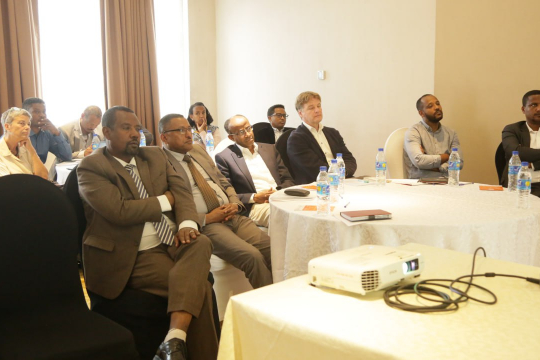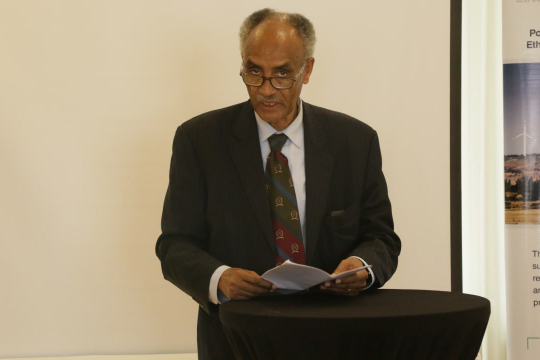EfD Ethiopia, hosted at the Environment and Climate Research Center (ECRC) in Addis Ababa held a launching workshop on a research project “Rural Household, Agriculture and Climate Change – why and how Farmers (do not) adapt in Ethiopia (RACE)". The workshop took place on Friday 22 September 2023.
The overall objective of the research project is to increase the adaptive capacity to climate change in low and middle-income countries. Using smallholder agriculture in Ethiopia as a case, RACE will suggest pathways to enhance rural households' adaptive capacity.
It aims to uncover what makes households adapt to changes, estimate the relative importance of climate change in the adaptation of new practices, measure what types of interventions promote adaptation (across a range of households, including female-headed households), and diagnose how this can inform effective future adaptation policies.
Data and knowledge from the project will contribute to creating a solid scientific foundation for these policies, enhancing the effectiveness of their implementation.
Adaption strategies are suggested
The Ethiopian economy depends heavily on agriculture. Traditional rain-fed small-scale agriculture makes up 34% of the national GDP, 85% of exports, and 75% of employment (Nation Bank of Ethiopia2018). Climate change affects the Ethiopian economy significantly and negatively, with predictions of increasingly erratic rainfall patterns implying more frequent flooding and droughts (IPCC 2021).
Rural household adaptation is necessary to maintain agricultural productivity and reduce rural poverty. In light of the vulnerability of the Ethiopian economy to climate change and the low level of adaptation in the agricultural sector, the Ethiopian Government has launched a string of interventions to increase adaptation among smallholder farmers. These include activities to promote smallholder irrigation and rainwater harvesting and sustainable use and management of watersheds. The project hence aims to address the climate adaptation capacity of households.
This project is a collaboration between Copenhagen University, Bahir Dar University, and the Policy Studies Institute (PSI). One of the project’s outputs is capacity building which includes improved skills for research design, high-quality data collection, advanced data analysis, and high-quality writing. In order to achieve this, four PhD students will be involved in the research.
Project duration: 2023-2027
Project funder: Ministry of Foreign Affairs of Denmark, Danish International Development Agency (DANIDA)

